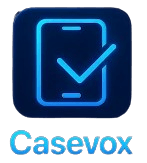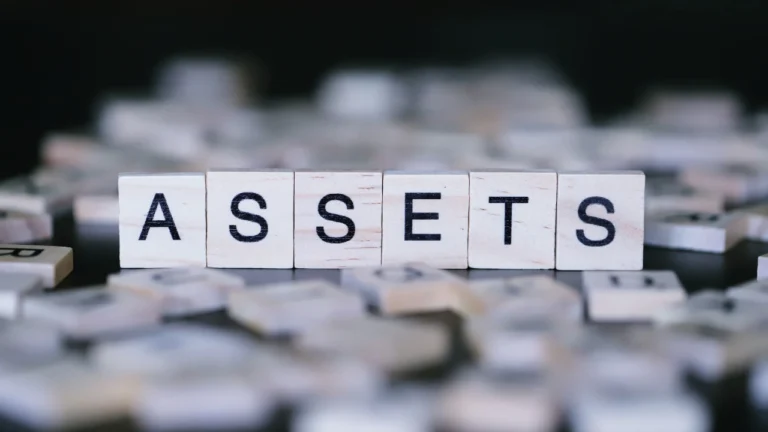Understanding Nationwide Recovery Services
Nationwide Recovery Services is a debt collection agency that may contact individuals who are behind on payments. As a third-party debt collector, they may use various tactics to collect debts, including phone calls, letters, and emails. However, it’s essential to understand that debt collectors, including Nationwide Recovery Services, are bound by federal laws that regulate their behavior.
The Fair Debt Collection Practices Act (FDCPA) is a federal law that protects consumers from abusive debt collection practices. The FDCPA prohibits debt collectors from using harassment, false statements, or unfair practices to collect debts. If you’re being contacted by Nationwide Recovery Services, it’s crucial to know your rights and options under the FDCPA.
Nationwide Recovery Systems Phone Harassment?
Is Nationwide Recovery Systems harassing you through phone calls? NRS is a debt collector, and they may be calling you about a debt. Everyone gets into not bad economic times once in a while which can make them fall behind on a few bills. When this happens, their creditor may send or sell their debt to a collection agency like Nationwide Recovery Systems who then takes up the job of contacting the debtor and attempting to recover the debt from them.
Calls from collection agencies can be aggravating and annoying. You should know that federal laws like the FDCPA prohibits debt collectors from speaking to you in abusive and harassing ways, calling you at your place of work when they know they shouldn’t, or calling your employer. If Nationwide Recovery service keeps calling you many times intentionally to annoy you, that may be considered a violation under the Fair Debt Collection Practices Act. This type of nationwide recovery systems harassment can adversely affect your mental health, so recognizing early warning signs of psychological distress is crucial to seek appropriate action.
If *you think that they may be *violating the FDCPA than you can sue them and receive up to $1,000 in statutory damages. Nobody deserves to be unfairly treated by debt collectors.
Should a debt collector call your family members?
It is one thing for debt collectors to pester you with calls, but when they begin to call your family members and friends concerning your debt, it could be demeaning and disgraceful.
If debt collectors are unable to reach you, they may reach for the contact address of a family member that you have shared before or they found online.
Debt collectors are permitted by law to call your friends or family to get information like your address and phone number, but they are not allowed to reveal your debt information to them.
The FDCPA prohibits debt collectors from disclosing your debt information to your family members. If Nationwide Recovery already has your number and can contact you, then they have no reason to contact your family members about the debt.
Can a debt collector sue you?
Often times debts are passed over to debt collectors by your creditors. Debt collectors, by ensuring that you pay up get paid. So, it’s no surprise that they can sue you to ensure you pay up. The first step they take is to submit a lawsuit to the court. A lawsuit is basically a complaint and/or summons against you, the defendant/debtor by your creditor using a debt collector/agency. The lawsuit contains information regarding why are sued, the money you owe and interest, the time limit for the submission of your response and date of your court hearing. The debt collector goes ahead to serve you the lawsuit hence informing you a case is filed against you. If you are facing a lawsuit from a debt collector, it is important to explore your legal options to protect your rights. If you are facing aggressive and harassing debt collection practices, it is important to know your rights and take steps to stop nationwide recovery efforts that violate the FDCPA.
Nrs collection agency has the right to sue a debtor unless the debt in question is an old debt, one that exceeded the statute of limitations. In this case, nrs collection agency, is not allowed to sue you.
However, some debt collectors try to change the date of old debts, just so they can sue. If you suspect that the debt, you’re being sued for has exceeded the statute of limitations, you should check your records to confirm the dates.
Your Rights and Options
As a consumer, you have the right to be treated fairly and respectfully by debt collectors. If you’re experiencing debt collection harassment from Nationwide Recovery Services, you have several options to stop the harassment and protect your rights.
Firstly, you can request that Nationwide Recovery Services stop contacting you by sending a cease and desist letter. This letter should be sent via certified mail and should include your name, address, and a clear statement that you want the debt collector to stop contacting you.
Secondly, you can file a complaint with the Federal Trade Commission (FTC) or your state’s Attorney General’s office. These agencies can investigate your complaint and take action against Nationwide Recovery Services if they’re found to be violating the FDCPA.
Lastly, you can consult with a consumer rights attorney who specializes in debt collection harassment cases. An attorney can help you understand your rights and options and represent you in court if necessary.
Who are Nationwide Recovery Systems?
Nationwide Recovery Systems is a third-party debt collector located in Dallas, Texas. NRS has been a party to a Federal Court case over 85 times. They have been accused of violating consumer’s rights and illegal and harassing communication tactics to attempt to coerce a payment from the harassed consumer.
Contact Information
Address: 4635 McEwen Rd
Dallas, TX 75244-5308
Phone: (972) 798-1000
Is Nationwide Recovery Systems a Scam?
According to the Better Business Bureau website, Nationwide Recovery Systems has been in business for 40 years. There have been 49 complaints filed against NRS with the BBB. Read more about it here: Nationwide Recovery Systems Better Business Bureau
Nationwide Recovery Systems is often referred to or searched for by other names. These include:
Nationwide Recovery Systems Phone Numbers
Are you receiving any harassing phone calls from any of the following numbers?
972-798-1000, 972-798-1020, 833-332-6445, 904-299-5948, 833-827-4446, 972-798-1000, 972-798-1020, 833-332-6445, 904-299-5948, 833-827-4446, 972-798-1000, 972-798-1020 833-332-6445, 904-299-5948, 833-827-4446, 864-375-4999, 704-461-3512, 833-332-6445, 813-359-1417, 727-219-9490, 866-326-0997, 800-822-8383, 866-842-8857, 903-266-3955, 800-776-4600, 281-404-1275, 214-206-8072
If the answer is yes, then you are receiving calls from a known NRS number. If you are receiving any form of harassment during these calls, do not hesitate to reach out to a qualified professional at 877-700-5790 for help.
The following is a sample list of complaints filed against Nationwide Recovery Systems in the past and can be found on Pacer.org.
5:12-cv-05193-JLH Smith v. Nationwide Recovery Systems
1:10-cv-01415-SEB-TAB Hawkins v. Nationwide Recovery Systems
1:11-cv-03314-ELH Rooney v. Nationwide Recovery Systems
2:12-cv-13725-AJT-DRG Kersey v. Nationwide Recovery Systems
2:03-cv-05847-MMB Moyer v. Nationwide Recovery Systems
Fair Debt Collection Practices
Fair debt collection practices are essential to protect consumers from harassment and abuse by debt collectors. The Fair Debt Collection Practices Act (FDCPA) is a federal law that regulates debt collection practices and prohibits debt collectors from engaging in unfair or deceptive practices. Some of the key provisions of the FDCPA include:
- Prohibiting debt collectors from contacting consumers at inconvenient times or places
- Requiring debt collectors to provide consumers with written notice of the debt and the amount owed
- Prohibiting debt collectors from making false or misleading representations
- Prohibiting debt collectors from harassing or abusing consumers
In addition to the FDCPA, the Telephone Consumer Protection Act (TCPA) also provides protections against unlawful debt collection practices, particularly those involving phone calls.
Nationwide Recovery Systems, as a debt collection agency, is subject to the FDCPA regulations and must comply with these provisions to avoid violating consumer rights. Understanding these fair debt collection practices can empower you to recognize and report any misconduct by debt collectors.
Can Nationwide Recovery Services Contact Your Family?
Nationwide Recovery Services may attempt to contact your family members to locate you or to collect a debt. However, the FDCPA prohibits debt collectors from contacting third parties, including family members, without your consent.
If Nationwide Recovery Services contacts your family members, they can only ask for your contact information, such as your phone number or address. They cannot discuss your debt or provide any information about your debt to your family members.
If you believe that Nationwide Recovery Services is harassing your family members, you can send a cease and desist letter to the debt collector and file a complaint with the FTC or your state’s Attorney General’s office.
Documenting Debt Collection Interactions
Documenting debt collection interactions is crucial to protect yourself from harassment and abuse by debt collectors. When dealing with Nationwide Recovery Systems or any other debt collection agency, it’s essential to keep a record of all interactions, including:
- Date and time of each interaction
- Name and title of the debt collector
- Phone number and extension
- Details of the conversation
- Any threats or promises made
- Any evidence of harassment
Keeping detailed records of each interaction can help you track any violations of the FDCPA and provide evidence if you need to file a complaint or lawsuit against the debt collector. This documentation can be invaluable in proving your case and stopping the harassment.
Documenting Harassment
If you’re experiencing debt collection harassment from Nationwide Recovery Services, it’s crucial to document all interactions with the debt collector. This includes keeping a record of all phone calls, emails, and letters from the debt collector.
You should also keep a record of any payments you make to the debt collector and any correspondence you send to the debt collector. This documentation can be used as evidence if you file a complaint or lawsuit against Nationwide Recovery Services.
In addition to documenting harassment, you should also keep a record of any damages you’ve suffered as a result of the harassment. This can include emotional distress, lost wages, or other financial losses.
By documenting harassment and damages, you can build a strong case against Nationwide Recovery Services and seek compensation for any harm you’ve suffered.
Filing a Complaint
If you believe that Nationwide Recovery Systems or any other debt collection agency has violated your rights under the FDCPA, you can file a complaint with the Federal Trade Commission (FTC) or your state’s Attorney General’s office. You can also file a lawsuit against the debt collector for damages.
To file a complaint, you’ll need to provide detailed information about the debt collector’s practices, including:
- The name and address of the debt collector
- The date and time of each interaction
- A description of the debt collector’s practices
- Any evidence of harassment or abuse
You can file a complaint online or by mail, and it’s essential to keep a copy of your complaint for your records. Taking this step can help hold debt collectors accountable and protect other consumers from similar harassment.
Protecting Your Mental Health
Debt collection harassment can take a toll on your mental health, causing anxiety, depression, and stress. It’s essential to prioritize your mental health and take steps to protect yourself from the negative effects of debt collection harassment.
Some ways to protect your mental health include:
- Seeking support from friends and family
- Practicing stress-reducing techniques, such as meditation or deep breathing
- Seeking professional help from a therapist or counselor
- Keeping a journal to track your interactions with debt collectors
- Taking breaks from debt collection interactions to focus on self-care
Remember, you don’t have to face debt collection harassment alone. There are resources available to help you protect your mental health and take action against debt collectors who violate your rights.
Getting Help from a Debt Collection Agency Lawyer
If you’re dealing with debt collection harassment from Nationwide Recovery Systems or any other debt collection agency, it’s essential to seek help from a debt collection agency lawyer. A lawyer can help you understand your rights under the FDCPA and take action against debt collectors who violate your rights.
Some benefits of working with a debt collection agency lawyer include:
- Free consultation to discuss your case
- Expert knowledge of the FDCPA and debt collection laws
- Ability to negotiate with debt collectors on your behalf
- Representation in court if necessary
- Help with filing complaints and lawsuits against debt collectors
Don’t hesitate to reach out to a debt collection agency lawyer if you’re dealing with debt collection harassment. They can help you protect your rights and take action against debt collectors who violate your rights.
Taking Action Against Nationwide Recovery Systems
If you believe that Nationwide Recovery Systems has violated your rights under the FDCPA, you can take action against them. Some steps you can take include:
- Filing a complaint with the FTC or your state’s Attorney General’s office
- Filing a lawsuit against Nationwide Recovery Systems for damages
- Seeking help from a debt collection agency lawyer
- Keeping detailed records of all interactions with Nationwide Recovery Systems
- Reporting any violations of the FDCPA to the Better Business Bureau or other consumer protection agencies
Remember, you have the right to protect yourself from debt collection harassment and take action against debt collectors who violate your rights. Don’t hesitate to reach out to a debt collection agency lawyer or consumer protection agency for help.
About Us
Consumer Rights Law Firm, PLLC is a law firm that specializes in helping clients who are facing harassment from debt collectors. If you suspect that your debt collection rights are being trampled upon, contact our office to begin the process to stop the harassment you may currently be receiving from NRS. Our office has been assisting consumers since 2010, and we have an A+ rating with the Better Business Bureau.
Call us at (877)700-5790 for immediate assistance.
Check out the links below for more information:
https://consumer.ftc.gov/articles/debt-collection-faqs







